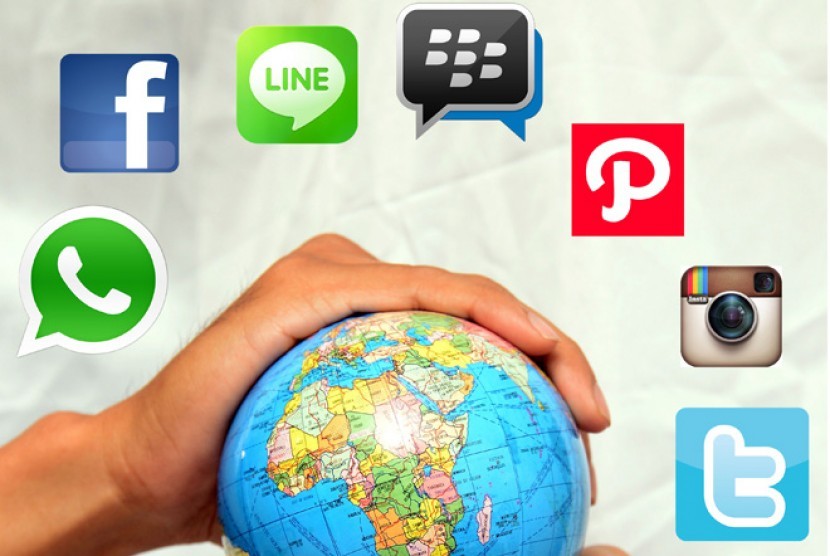By : Kurniadi *)
REPUBLIKA.CO.ID - National Police Spokesman Insp. Gen. Boy Rafli Amar in Police Headquarters Jakarta confirmed that the National Police has coordinated with the Ministry of Communications and Informatics to block any content on online media that is considered harmful and related to radicalism. The blocking also includes Facebook account which is allegedly used by IS fighter Bahrun Naim as a communication channel with the group of Kitabah Gigih Rahmat (KGR). Police is wary on Bahrun Naim’s capabilities to train his terrorist cells online.
According to Boy Rafli Amar, the group of KGR is allegedly affiliated with Bahrun who now lives in Syria. KGR also allegedly received a training from Bahrun on how to make bombs through social network, Facebook.
Previously, suspected terrorists Gigih Rahmat Dewa along with five members of KGR group were arrested on Friday (08/05/2016) by Detachment 88 Antiterrorism in Batam. The six were arrested in several different locations. GRD (31), Tar (21) and ES (35) were arrested in the area of Batam Center, TS (46) was arrested in Nagoya, HGY (20) and MTS (19) were arrested on Jalan Brig Katamso, Batu Aji, Batam. They all are still getting through intensive investigation by police in Batam to find out their role in terrorism.
The Use of Social Media
Malcolm X once stated his opinion about the strength of social media as he said, “the media’s the most powerful entity on earth. They have the power to make the innocent guilty and to make the guilty innocent, and that’s power. Because they control the minds of the masses”.
Hypothesis of Metz & Reeves (2005) on the mass media and political interests almost shared the similar thing that political portrayal in the media have a tendency to simplify, to blame a certain party, to put politics as always-negative issue, and vice versa.
Paul Wilkinson on his book titled “Terrorism and Counter Terrorism in the Contemporary World”, The Scarecrow Press, Inc., Lanham Maryland-Toronto-Plymouth, United Kingdom (2009) said that terrorists take mass media as a crucial tool to spread the propaganda so that any action conducted by the terrorist can be reported and expressed by mass media.
At least there are four reasons why terrorists extremely need mass media. First, the reporting of mass media is beneficial to describe or even to manipulate the situation. Second, the mass media reporting is expected to create an exploited situation when the terrorist attack is carried out, but then it will create the calm situation, it will ease the tension, uncertainty, and tremendous fear of the society. Third, such calmness or composure suppress and encourages the terrorist group to create such a bigger or more massive attack. And the last one, the terrorists use mass media as a justification for what they are doing.
Meanwhile, Adrianus Meliala assessed that today’s young generation who are radicalized are mostly self-radicalized. They are not grasping the ideology by meeting some clerics or joining other extremist group, instead they learn it by themselves online. Al Chaidar stated that there are some terrorist group using mass media as a communication channel to public.
Terrorist groups, such as Jemaah Islamiyah or the Islamic State of Indonesia (NII) have some characters in running their activity. Some groups prefer to shy away from the media and do not provide any explanation for the actions of bombings against the public, because their congregation or followers consider that what they do does not require a comment or public criticism. They will only focus on actions as they believe that’s what the Koran says, and there should be no further interference regarding their actions. On the other hand, Jamaah Tamed is more likely to utilize and be "friends" with the mass media as they once established a magazine, named Al Ikhwan.
Brian Mc Nair on his book titled “Introduction to Political Communication”, Harvard University (1999) said that terror is a political communication form that is conducted out of constitutional procedure. The terrorists are looking for publicity to bring their psychological purpose. They use violence to create various psychological impacts, such as to encorage the enemy demoralization, to demonstrate their strength, to gain public sympathy, and to create fear and chaotic situation. In order to achieve their goals, they published their terror acts on mass media.
Based on the aforementioned theories and experts’ ideas, it’s clear that social media, such as Twitter and Facebook has assisted any terror group, including separatist to spread propaganda in order to show off their existence, to express criticism towards the ruling government performance, or even to recruit new followers and sympathizers. Their activity on social media can’t be underestimated that it requires the immediate implementation of “narrative counter measures” as well as humanist and persuasive approach towards the founder of social media to not give a space for any terrorist group to utilize social media as their communication channel.
Meanwhile, the Papua separatist group seems to intensify their agitation, propaganda, and conditioning on mass media as they’re getting a lot of trouble to express their ideas through rallies, demonstration, etc.
The misleading information (provocative article and picture) may attract sympathy or otherwise it may draw a rejection on the information itself that raises pros and cons in the society impacting on the public security situation
The intensive propaganda carried out by terrorist, radicalism, or even separatist demands an immediate response through crucial or urgent “narrative counter measures” to be disseminated extensively on social and mass media.
*) The writer is a graduate of Padjadjaran University Bandung (Unpad), resides in Cirebon, West Java.



